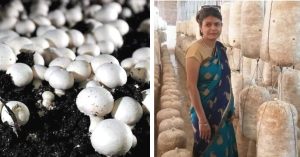MBA Dropout Earns Rs 13 Lakh/Month By Growing Mushroom Spawns
Wondering how to start a mushroom business? Rajasthan's Shanker Meena founded 'Jeevan Mushrooms', a successful mushroom spawns' manufacturing unit in his garage.
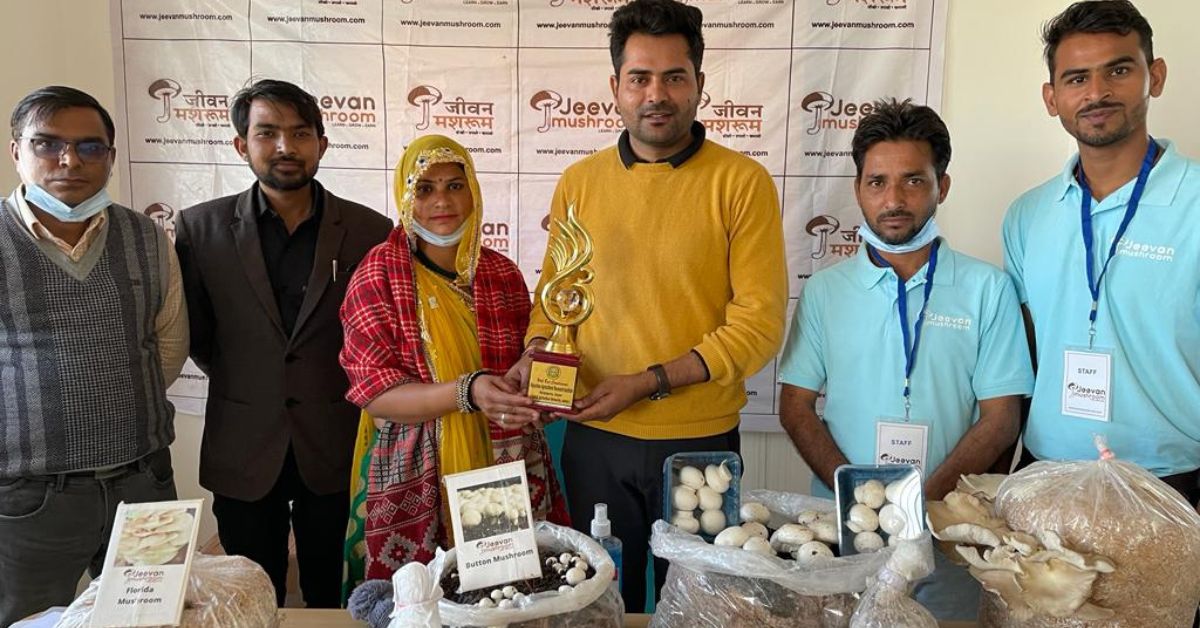
Born in a Rajasthan village, Shanker Meena spent his childhood playing amid wheat and mustard crops. But as he grew up, he saw his father toil day and night to cultivate those crops that would get damaged due to the wrath of nature, resulting in low crop yield and thereby uncertain earnings.
To tap into a stable income, he went on to complete his higher studies in commerce and subsequently joined RA Podar Institute of Management to pursue a career in finance. However, Shanker dropped out of the college right after the completion of his first semester in 2012.
“Although I took the admission, back in my mind, I would always think about new business ideas. My heart belonged to farming. So, I wanted to explore a way to amalgamate farming and business,” the MBA dropout tells The Better India.
A couple of years later, Shanker fulfilled his dream by launching his company ‘Jeevan Mushroom’ where he sells spawns of a wide range of mushrooms including button, oyster, lion’s mane, paddy straw, shiitake, ganoderma, portobello, and more.
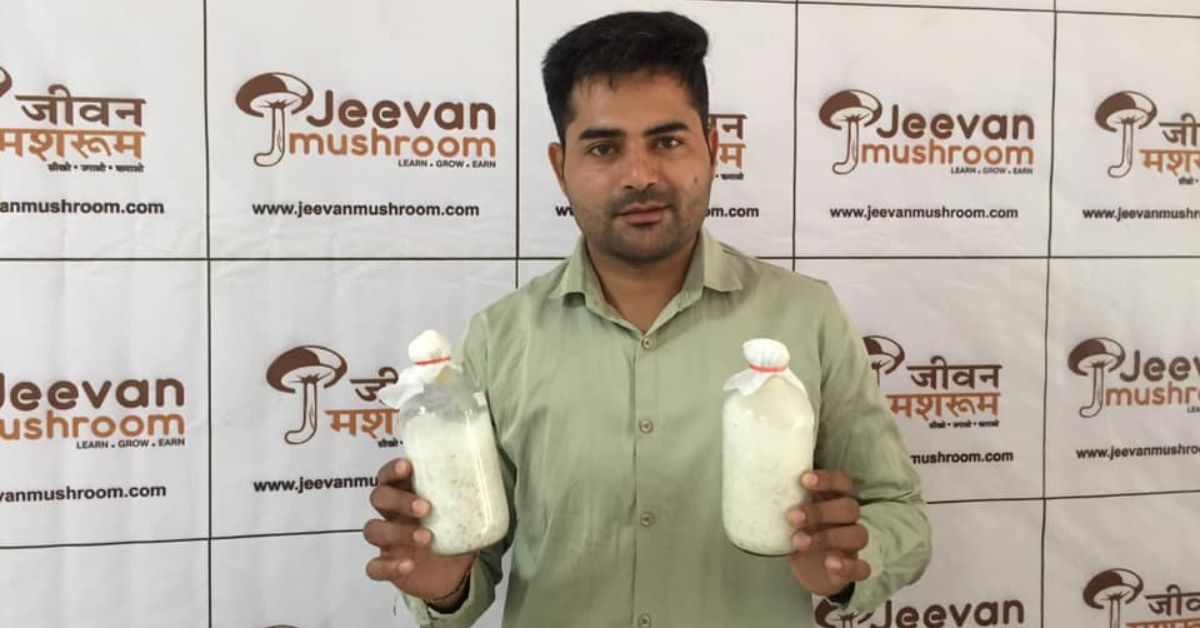
Today, he has established a huge market base not only in India but also abroad where he exports his produce to neighbouring countries including Bhutan and Nepal, and the UAE. Currently, his monthly revenue stands at Rs 13 lakh.
Mushrooming ideas
For Shanker, the decision to quit MBA was not easy. “People doubted my abilities and stressed that it was time for me to concentrate on shaping my career instead of running a business at this age. People from my caste are expected to become IAS officers. I was never interested in that. And to make it worse, I quit my college after the first semester mocking the expectations of the villagers,” he laughs.
Anyway, after dropping out of college, Shanker tried his hands at cultivating mushrooms. “This product was new at that time and was popular in hotels. I knew that this business would boom in the future,” he says.
So in 2015, Shanker went to the ICAR-Directorate of Mushroom Research in Solan to understand the nitty-gritty of cultivating mushrooms. Coming back, he vacated a small room of his house and set up the base for cultivating mushrooms.
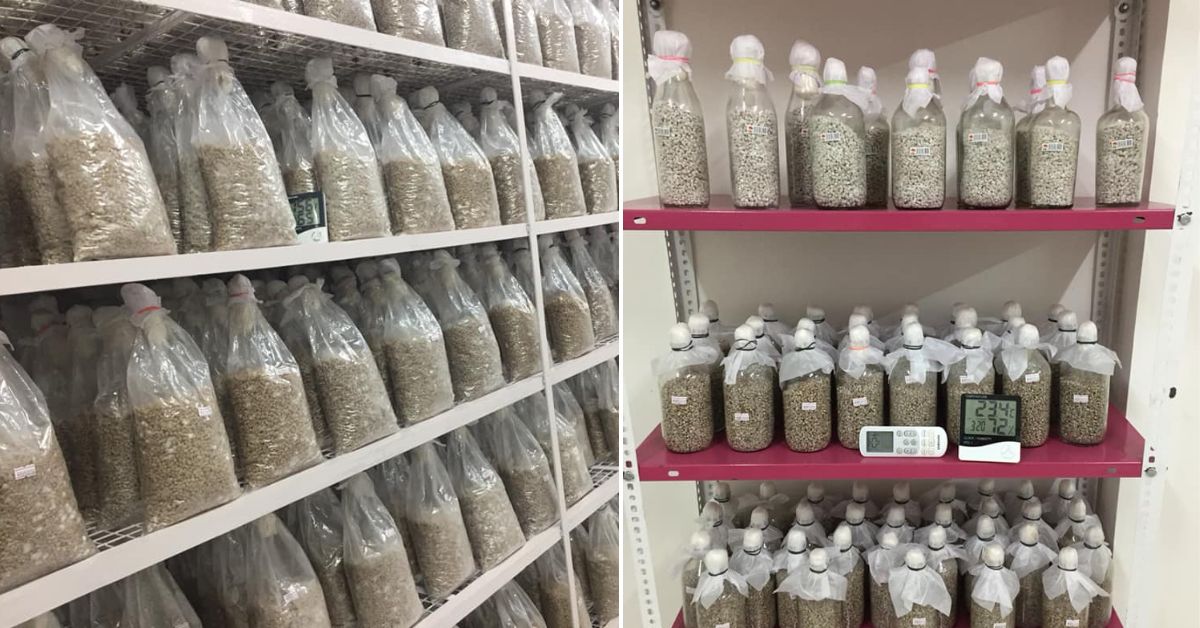
“In a few months, I observed that Rajasthan did not have a single unit that manufactured mushroom spawns. People were dependent on states like Himachal, Haryana, and Delhi to source the seeds. I saw this as a perfect opportunity that would help me stand out in the crowd,” he adds.
For this, Shanker sourced the mother culture from ICAR, Solan and set up a temporary ‘jugaad’ (make-do lab) in the garage of his house to cultivate spawns on a trial basis. Meanwhile, he also managed to get a loan of Rs 9 lakhs under the Pradhan Mantri MUDRA Yojana. With the loan amount and financial support from family and friends, he worked on establishing a dedicated lab spread across an area of 9,000 sq-ft.
In the lab, he introduced advanced pieces of machinery like seed germination chambers, vertical autoclaves, and a laminar airflow cabinet to provide a sterile working environment for better productivity.
In 2017, after five years of research and development, Shanker officially launched his company which he runs along with his wife, Kanchan Meena. With the help of social media, he started getting orders for mushroom spawns in bulk.
Today, Shanker produces up to 80 tonnes of mushroom spawns in his lab. Priced between Rs 90-115 per kg, his spawns have a huge demand in other states including Uttar Pradesh, Madhya Pradesh, Bihar, Maharashtra, Chhattisgarh, Punjab, Haryana, Jharkhand, and Assam.
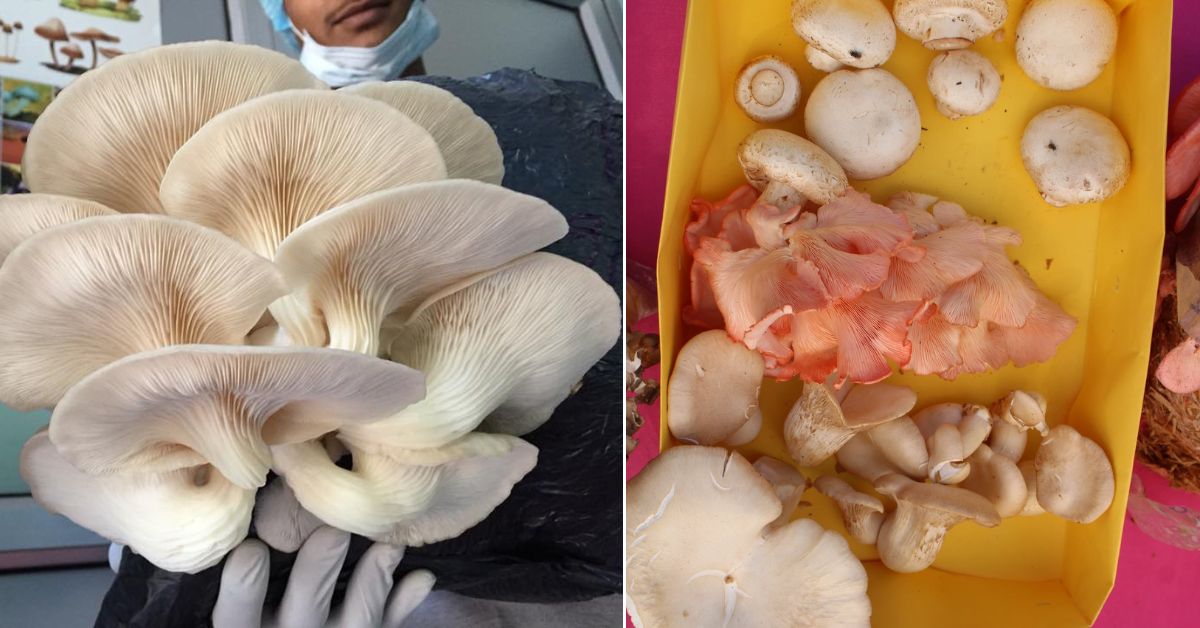
Why he became successful
Today, mushroom cultivation has gained popularity among small-scale farmers for its low input costs, relatively high yield, and return on investment. But, Shanker opines, not many people are able to extract as much profit owing to a lack of scientific approach.
“The reason why we became successful is because I always stressed on the quality of spawns that is usually compromised in this business,” he says.
He further explains in detail, “Like other crops of wheat and vegetables, we do not have a seed for mushrooms. It is a fungus which is manufactured in hygienic conditions in a lab. We require a tissue culture and mother spawn to multiply this fungus and get more spawns for commercialisation.”
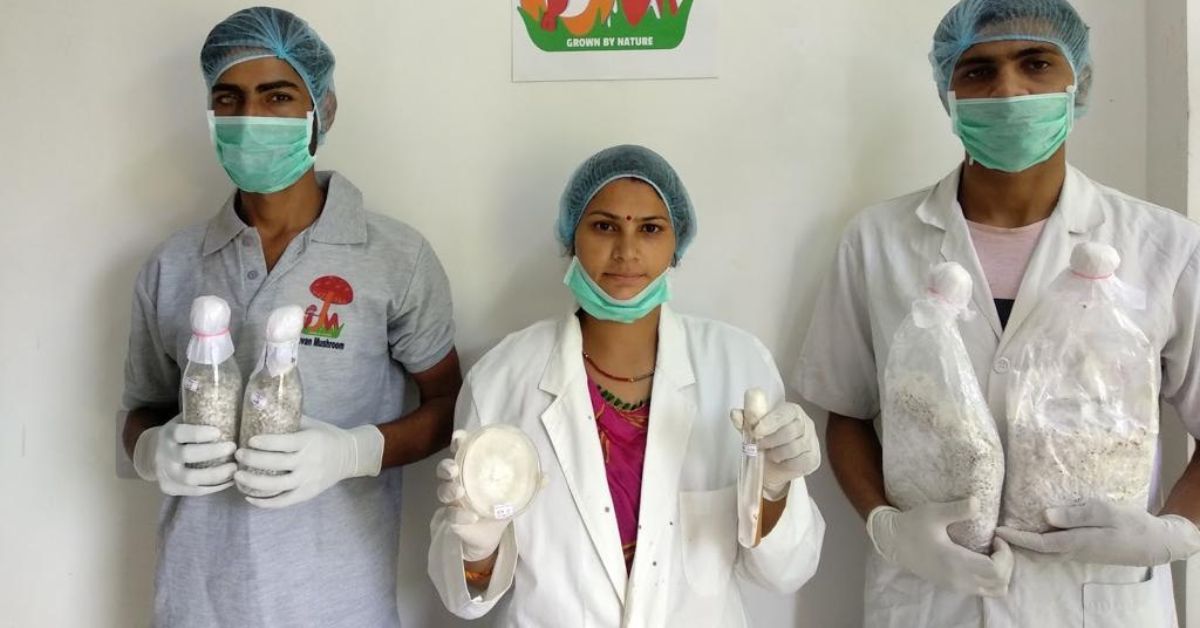
“But farmers take a shortcut and keep multiplying spawns using the commercial spawns, instead of preparing a different tissue culture and mother spawn. This reduces the quality of the spawns and makes them vulnerable to diseases. While they may not observe the effect immediately, it is observed by farmers only when they get a low yield,” he adds.
Although Shanker earns a decent profit today, it is not all roses all the time. “Along with profits, we also incur losses sometimes. Last year, we faced losses worth Rs 27 lakh. I was receiving complaints of low yield. When I checked the machinery, I found out there was a thin hair size leakage that contaminated the spawns,” he says.
“Sometimes, I get discouraged by such situations and I feel like quitting. But then I look back at my journey and I feel overwhelmed to have come so far. I have a commerce background and the first time I saw a test tube was during my training. Such small achievements motivate me to strive for the success of my company. That’s why now I do not keep a plan B,” he smiles.
Shanker has also been conferred with Progressive & Innovative Farmer awards by the Rajasthan government in 2019 and Innovative Agricultural Startup by the Startup India in 2020.
Edited by Padmasshree Pande. All images: Shanker Meena.
If you found our stories insightful, informative, or even just enjoyable, we invite you to consider making a voluntary payment to support the work we do at The Better India. Your contribution helps us continue producing quality content that educates, inspires, and drives positive change.
Choose one of the payment options below for your contribution-
By paying for the stories you value, you directly contribute to sustaining our efforts focused on making a difference in the world. Together, let's ensure that impactful stories continue to be told and shared, enriching lives and communities alike.
Thank you for your support. Here are some frequently asked questions you might find helpful to know why you are contributing?







